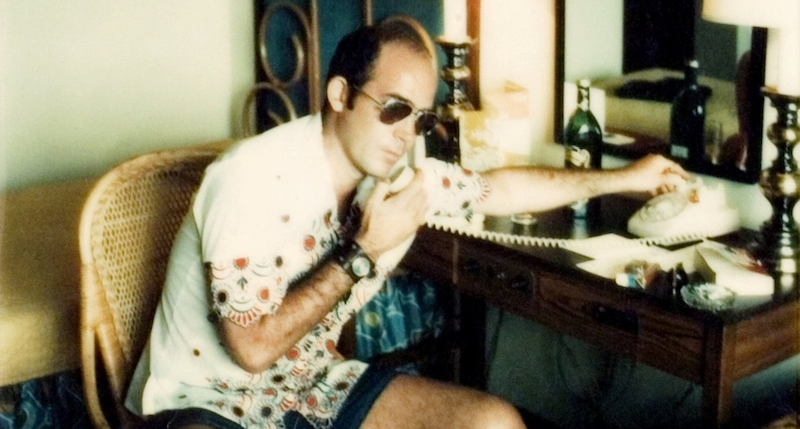
There are conflicting stories about the first use of the word gonzo to describe Hunter’s journalism but all credit fellow journalist Bill Cardoso. Maybe it was on the press bus during the 1968 New Hampshire primaries, maybe it was in a letter praising Hunter’s 1970 Kentucky Derby piece, maybe it was just one night in a bar, but it was definitely Cardoso who used gonzo first, and he and Hunter agreed on that. It came to mean more than the lack of objectivity in the amped-up first-person voice that Hunter’s work personified, but Cardoso would say only that he meant the word scatologically—as in crazy shit—and that he had used it many times before he applied it to Hunter’s journalism.
Cardoso rose at the Boston Globe to edit its Sunday magazine, quit to open a jazz club in the Canary Islands, then returned to journalism and famously become the most unfamous practitioner of the New Journalism among the New Journalists. I wish that sentence were as sharp as it is true in the way Cardoso wrote that the Tournament of Roses Parade on New Year’s Day in Pasadena was “the meeting ground of Babbitt and Costello.”
Cardoso and the journalist and promoter Harold Conrad painted layers of polish on the word hipster—or, as Cardoso sometimes put it when describing himself, wordhipster. Conrad was less unfamous, since his friend Budd Schulberg had based the cynical fight press agent in The Harder They Fall on him, and Humphrey Bogart had played him in the movie. Conrad introduced Cardoso, Thompson, George Plimpton and Norman Mailer to Muhammad Ali, and put them in ringside seats. His idea was that if you get important journalists to cover the fights, the rest takes care of itself—especially after a toke or two.
All of the writers mentioned above wrote careful, crafted pieces that came in clean. Unsurprisingly, not Hunter. Likewise those same writers helped to speed the editing process while Hunter turned it into theatre, saying that there were far fewer good editors than good writers, and that he had learned some nasty lessons from their incompetence. He had a riff about it, about how he would suck editors into his pieces as conspirators, all of us wanting to prove ourselves good enough—hip enough—to edit him.
(…)

